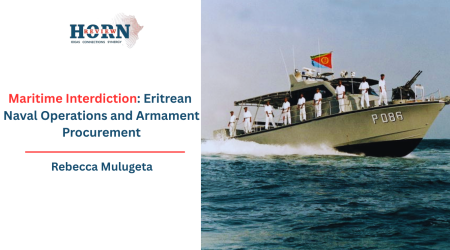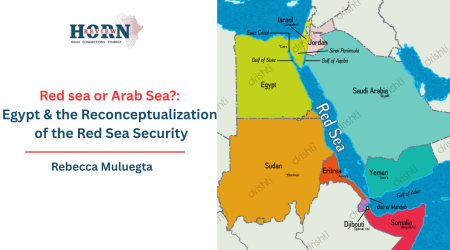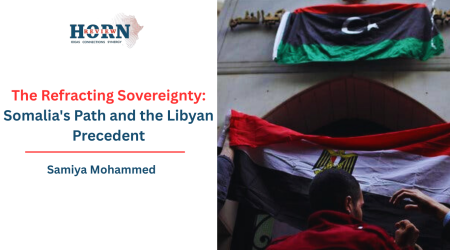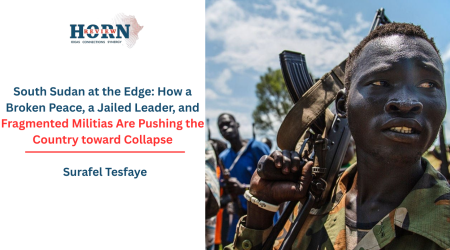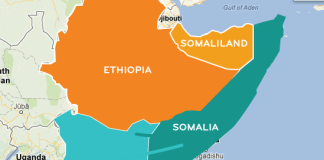
25
Jul
Strategic Setback: The Geopolitical Cost of Somalia’s Naval Snub to Ethiopia
The Horn of Africa has long been a crucible of overlapping security, economic, and political interests. Ethiopia and Somalia – two nations historically bound by geography, people, and shared security threats – have navigated complex and often turbulent relations. Yet, despite this historical mistrust, Ethiopia has consistently played a central role in Somalia’s internal security architecture. From boots-on-the-ground counterterrorism operations against Al-Shabaab to diplomatic support for federalism and state-building, Ethiopia’s stake in Somalia’s peace has remained strategic and sustained.
It is in this context that Somalia’s recent rejection of Ethiopia’s request to participate in a multilateral naval drill – citing concerns over violations of international maritime law and threats to sovereignty – must be assessed not in isolation, but within the evolving geopolitical landscape of the Red Sea basin and global power projections in the region. Somalia’s Defense Minister, Ahmed Moallim Fiqi, justified the decision by asserting that “there is no precedent or legal framework that allows this kind of involvement.”
This assertion is misleading in both legal and diplomatic terms. Landlocked nations have routinely participated in maritime exercises through joint command structures, peacekeeping mandates, or bilateral partnerships. There is no international legal restriction – under the UN Charter, the UN Convention on the Law of the Sea (UNCLOS), or regional security frameworks – that bars such participation. What Fiqi’s statement overlooks is that military cooperation – particularly on issues like piracy, smuggling, or terrorism – often includes states that, while lacking direct maritime access, hold vital stakes in regional maritime stability.
International precedent is clear. Switzerland and Austria, both landlocked, participate in European maritime security dialogues. Ethiopia has itself engaged in naval policy discussions within IGAD and AU frameworks, particularly concerning the Gulf of Aden and Red Sea corridors. The legal foundation for such involvement stems from the principle of sovereign equality and the right of any UN member to participate in cooperative security measures, including those of a maritime nature.
Somalia’s rejection of Ethiopia’s participation is not merely about naval drills. It reflects a broader political realignment that warrants careful scrutiny. For over three decades, Ethiopia has been a principal pillar in Somalia’s security infrastructure. Ethiopian troops have fought and died in Somalia – under AMISOM, ATMIS (now AUSSOM), and in bilateral operations. Their presence in Gedo, Bay, Bakool, and Hiiraan has been instrumental in curbing Al-Shabaab’s influence.
Crucially, Ethiopia has also served as a stabilizing counterweight to external interference in Somalia’s internal affairs. In a region where actors such as the UAE, Turkey, Egypt, Russia, and China compete for influence, Ethiopia’s proximity and deep understanding of local dynamics make it a uniquely indispensable partner.
To sideline Ethiopia over legalistic concerns is not only short-sighted but potentially counterproductive. Maritime cooperation – particularly in the Red Sea and Gulf of Aden – is essential to Somalia’s economic recovery and sovereignty. These waters are increasingly shaped by global rivalries, and Ethiopia’s exclusion weakens the prospect of a coordinated African-led security approach.
The timing of Somalia’s decision raises additional questions. It comes in the wake of President Hassan Sheikh Mohamud’s visit to Cairo, where Egypt reaffirmed its support for Somalia’s territorial integrity. Egypt, with its longstanding interest in curbing Ethiopian influence – particularly amid tensions over the Grand Ethiopian Renaissance Dam (GERD) – has deep stakes in Red Sea dynamics. While solidarity with Somalia is not inherently problematic, it becomes a concern when it begins to shape Somali foreign policy at the expense of regional pragmatism.
Ethiopia remains Somalia’s most strategically relevant neighbor. The two share a 1,600-kilometer border, common security concerns, and interlinked economic futures. Whether Somalia’s decision was influenced by Egyptian pressure, nationalist sentiment, or symbolic protest over Ethiopia’s maritime MoU with Somaliland, it risks undermining Somalia’s broader strategic interests.
Ethiopia, a rising regional power with growing diplomatic reach, is not seeking maritime dominance but strategic access: access to secure trade routes, to safeguard against maritime terrorism, and to contribute to regional stability. Somaliland’s coastline – recognized or not – is part of the de facto maritime reality of the Horn. Ethiopia’s interest in establishing a naval presence does not inherently violate Somalia’s sovereignty; it reflects the security architecture required in an increasingly contested maritime domain.
Somalia’s rejection of Ethiopia’s participation thus sets a troubling precedent. It appears driven more by political signaling than by strategic logic. In distinguishing between diplomatic disputes and national interests, Somalia would do well to recognize Ethiopia’s indispensable role in its security trajectory. A cooperative approach to maritime security – one that includes Ethiopia – is not only legal and precedent, but essential. The Horn cannot afford fragmented alliances in an era of shifting global influence and intensifying regional competition.
By Yonas Yizezew,Researcher,Horn Review
References
- Hiraan Online. (2025, July 20). Somalia rejects Ethiopia’s request to join naval drill over Somaliland maritime deal.
- Kłosowicz, R. (2015). The role of Ethiopia in the regional security complex of the Horn of Africa. The Ethiopian Journal of Social Sciences and Language Studies, 2(2), 85–99.
- Reuters. (2024, October 30). What’s behind deteriorating Somalia-Ethiopia relations?

